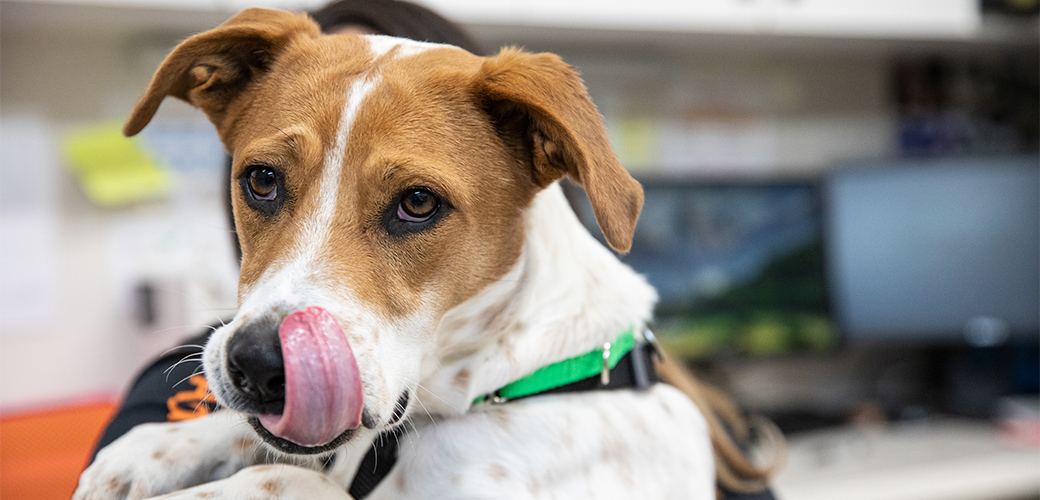What to Do If Your Pet Gets into Chocolate


January 10 is National Bittersweet Chocolate Day—and we’ll take any excuse to chow down on something sweet! Unfortunately, humans are not the only ones who like chocolate, and it can cause serious problems for our furry friends. In fact, chocolate is consistently on the ASPCA Animal Poison Control Center’s (APCC) list of top pet toxins each year. So, the burning question is, what should you do if your dog eats chocolate?
Collect the evidence
The first thing you should do is collect any remaining packaging from the chocolate treats to help your veterinarian or APCC determine what type of chocolate it was and how much your dog may have ingested. Note whether the chocolates had any sort of fillings, including raisins or macadamia nuts, as they can also be toxic. If the chocolate is sugar-free, it could also contain xylitol, a toxin that can cause low blood sugar and liver damage in our dog friends.
Reach out for help
If your dog is not showing any signs or having mild symptoms (vomiting, diarrhea, increased thirst, hyperactivity), you will want to call APCC at (888) 426-4435 or your regular veterinarian. Your veterinarian or APCC staff will use the information you gathered along with your dog’s weight and medical history to understand and explain to you what concerns they may have for your pet. The concerns may range from mild vomiting and diarrhea to more serious issues like increased or irregular heart rate and rhythm, muscle tremors and seizures.
Determine what treatment is needed
Once the veterinarian has determined which concerns may be applicable to your pet, they will guide you on what must be done next for treatment. If the situation is not serious, they may have you simply monitor your pet at home. If it is more concerning, they may advise that you induce vomiting. If serious or life-threatening signs could develop, your pet may need to stay in a veterinary hospital for monitoring and treatment.
Does it really matter what type of chocolate it is
The short answer is, YES!
Chocolate contains a compound called theobromine that dogs are sensitive to. Theobromine is in the same class of compounds as caffeine, so when dogs ingest chocolate in large quantities, the theobromine may cause hyperactivity or agitation, an increase in heart rate, muscle tremors and seizures. Generally, the darker the chocolate, the more theobromine it will contain, meaning it will take less dark chocolate to pose a problem for your dog. White chocolate has almost no theobromine, but some dogs may be sensitive to the amount of sugar and fat and ingesting any type of chocolate may lead to inflammation of the pancreas (pancreatitis).
It’s also important to remember that it will take much less chocolate to be a problem for smaller dogs than larger dogs, so take any ingestion seriously and make sure you take the proper steps to helping your pet.
What about cats?
Cats are sensitive to theobromine just like dogs, so if a cat ingests chocolate it can be dangerous for them as well. Fortunately, cats lack sweet taste buds, so they tend to not be readily drawn to chocolate. Cats also tend to be more discerning in what they eat and are less likely to consume larger quantities of chocolate. However, if your cat does eat chocolate, it is best to follow the above recommendations as well.
If you suspect your pet may have ingested chocolate or another hazardous substance, please contact your veterinarian or call the ASPCA Animal Poison Control Center at (888) 426-4435.
Source: Read Full Article
